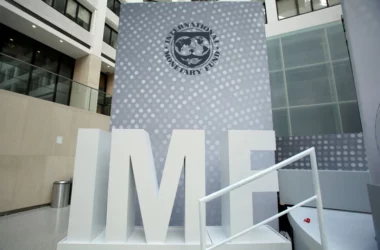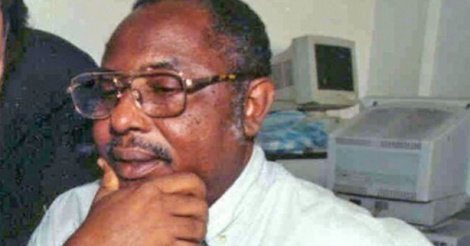
“The highest contempt is to negate the life of a human being and it is the grossest and most repulsive violation of human rights. What right does a government have in separating a husband from his wife, a father from his children, a friend from his loved ones, a colleague from his professional community through sheer brutality and malice? Why should journalists be held criminally accountable for giving the people the avenue to exercise their freedom of expression?
The climate of fear which Deyda’s death has sparked is palpable and is in danger of leading to a toning down of voices critical of the government”. (Excerpt Alagi Yorro Jallow, Toronto, 2005 International Press Freedom Award Speech).
The probable future for legacy making: Deyda Hydara his tireless independent search for truth and justice always shone through: 2004 was already a trying year for Gambia’s journalists before Deyda Hydara’s murder in December. The climate had begun to deteriorate after the attempted murder of lawyer Ousman Sillah on the night of 26 December 2003.The “Green Boys”, a clandestine group claiming to support President Yahya Jammeh made death threats firstly against Alagi Yorro Jallow,Managing editor of the bi-weekly newspaper the Independent,then Demba Ali Jawo,the then President of the Gambia Press Union, and finally BBC stringer Ebrima Sillah.Two arson attacks subsequently destroyed the Independent’s printing press and the BBC stringer’s home.
There was no serious police investigation into these arson attacks, not even after an Opposition parliamentarian revealed to the National Assembly the names of the three suspected of carrying out the attack on the Independent both National Guard members.Finally,a drawn –out tussle with independent journalists that had gone on for several years was brought to an end by the government on 14 and 15 December when it got the National Assembly to approve two laws that made deep inroads into press freedom. The following day,16 December, Hydara’s murder stunned and horrified the entire press corps.
Those who brutally and mysteriously killed Deyda Hydara, the brave and encyclopedic Gambian Journalist, cannot obviously succeed in wiping out his name. Like all fallen heroes in other parts of the world, Deyda would be spiritually remembered for his sacrificial life for the cause of humanity. It is unfortunate for the Gambia to lose such a knowledgeable man in the person of Deyda who more than a mere journalist was. He had left a glamorous mark for generations to see both at the national and international levels. The reason for his killing remains a mystery but it is highly believed to be linked with his profession, as one of the valiant sons of the ink.
Hydara was clearly a journalist who upset people. He used to write two very popular columns in the Point. One, called “The Bite, with DH”, appeared in almost all the issues of the Point, which is published three times a week. The other, called ‘Good Morning Mr. President, “appeared every two weeks. Over the years, these two columns indicate a well- argued and critical analysis of Gambian society, one full of ironic insolence towards the country’s rulers and others in position of power.
The “Good Morning. President” Column was undoubtedly the most popular of the two. Writing with great skill, often adopting a professorial tone, Hydara used to address the young president directly, offering his thoughts on national issues and the way the country was being governed. After Opposition parliamentarian Hamat Bah named the three leading suspects in the arson attack on the Independent’s printing press, Hydara devoted most of his columns in September 2004 to this case. On 6 and 13 September, he asked President Jammeh, who had returned from a trip abroad, to accord “urgent attention” to these reports and to ensure that the suspects were at least questioned by the police.
In November 2004.
Good Morning, Mr. President” began to tackle business as well as governance issues. Deyda voiced surprise that the head of the state-owned Assets Management Recovery Corporation whose management was being investigated for corruption, had just been named to run the Gambia ports authority. Hydara suggested that President Jammeh should keep him at the AMRC until the investigation was completed. Again, Hydara called for order to be restored in the hotel trade following several scandals and criticized the “pernicious favoritism’ in this sector. In his last column, published on 15 December, on the eve of his death, Hydara analyzed the state of relations between Jammeh and the student union, and called on the President to respect their importance and independence.
More frequent but less political, The Bite” also had an approach to economic and social issues that was both polemical and more technical than Good Morning Mr. President’. The last of these columns, which appeared on the eve of his death was entitled ‘We Shall Prevail,’ was used to attack the draconian press laws passed by the National Assembly the previous day. He explained how and why Gambia’s privately-owned media would challenge the laws before the appropriate national and international bodies, and called on the then Information Minister Amadou Scattred Janneh to resign to protect his dignity, because his attempts to keep a dialogue between the government and the press had been betrayed.
Originally entrusted to the police, the investigation into Hydara’s murder was transferred in February to the National Intelligence Agency, whose agents have been the perpetrators or the leading suspects in all the press violations in the Gambia during the past ten years. Two suspects have been arrested since Hydara’s murder and both were released after a few days. Neither was charged.
Deyda Hydara was subjected to harassment and surveillance by the Gambian intelligence services. Despite the mounting hostility towards dissent, he did not bow to the threats. Extremely well-informed and convinced he was within his rights; he wrote constantly about the way the country was being criticize what he thought were bad decisions and condemning abuses. The harsh new press legislation and the strategic question of the ailing groundnut sector were the dominant themes of his final articles.
He was murdered by professionals in a premeditated ambush in which, for still unexplained reasons, the security forces present in the area failed in their duty to protect and intervene. Since his murder, the investigation conducted initially by the police and then by the intelligence services has produced no conclusive result. The investigators have not considered the possibility that the murder was politically-motivated, although, it seems the most probable hypothesis.
Deyda Hydra had been Reporters Without Borders correspondent since 1994.He co-founded The Point Newspaper, a tabloid that appears three times a week in 1991 with his friend of 35 years, Baboucarr Gaye and Pap Saine. He had worked since 1974 for Agency France-Presse(AFP)which hired him as a translator and gradually made him its local correspondent. When The Point first appeared, it was the only newspaper of its kind. The rest of the print media consisted of just four-page, mimeographed publications. Thoughtful, altruistic and French-speaking, Hydara took clear humanistic positions in its columns. His opposition to the regimes that have succeeded each other in Gambia was neither acrimonious nor vengeful. He was an enlightened democrat. Aged 58 at the time of his death, he has no political ambitions.
PEN American Center, the largest center of the international literary organization dedicated to defending freedom of expression around the globe, awarded slain Deyda one of the two 2005 PEN/Barbara Goldsmith Freedom to Write Awards in New York’s American Museum of Natural History. Thirty-seven writers and journalists have received the award since it was established in 1987, but Mr. Hydras is the first to receive the honor posthumously
Deyda Hydara the editor of the Point Newspaper, had long been an ardent supporter of truthful and impartial reportage. He spoke the truth and wrote the truth. He was not afraid to confront injustice, is-government or criminality. He has paid the ultimate price for his professionalism and integrity.
Thoughtful, altruistic and bi-lingual, Hydara took clear, humanistic positions in its columns. His opposition to regimes that have succeeded each other in Gambia was neither acrimonious nor vengeful. He was an enlightened democrat. Aged 58 at the time of his death, he had no political ambitions.
He was shot in with a 9-mm bullet in the head and chest. He died instantly. He was killed by the first bullet fired at almost point-blank range into his left temple. Half-hearted police investigation which has followed is murder has brought not one person to justice.
Deyda’s murder has had a profound effect on me. He and I had a very good working relationship and two of us were acting as plaintiffs when the Gambia Press Union sued the Government over the NMC.I know Deyda as a professional and at a personal level. We were like brothers. We advised each other, congratulated each other, sympathized with each other, and supported each other in so many ways. You can imagine how I felt when I was informed that Deyda has been assassinated. My own grief has been as keen as that of his family.
Not one Gambian could have predicted that a man like Deyda Hydara would be gunned down because he was a journalist. His death at the hands of murderers acting with impunity is a scourge in our land, and marks a new phase in terror tactics and repression.
When it became clear that Deyda Hydara had been murdered, I did a lot of soul-searching and question surfaced and resurfaced on whether I should continue in my journalistic profession.
The spear of the nation has fallen. Let us pick up the spear, now to build a country after the example that Deyda Hydara has set for us.
Deyda a good, decent man who went out on a limb to help make the Gambia a better place. One of the few journalists who recognized the need to investigate a story, not simply report the facts as given by those ubiquitous ‘spokespeople’. Intelligent, brave and utterly committed to the search for justice, Paul’s death is a huge loss for democracy in this country.
His tireless independent search for truth and justice always shone through. He always appeared very sincere and I really do hope that young journalists who are entering the profession today use Deyda Hydara not only as a personal hero but also as a role model that they hopefully will have the opportunity to use in their careers. We all need Deyda Hydara and his death is very much to the loss of decency and freedom. May He Continue to Rest in Jannat-ul- Firdaus.
*This article was first published 2005:












